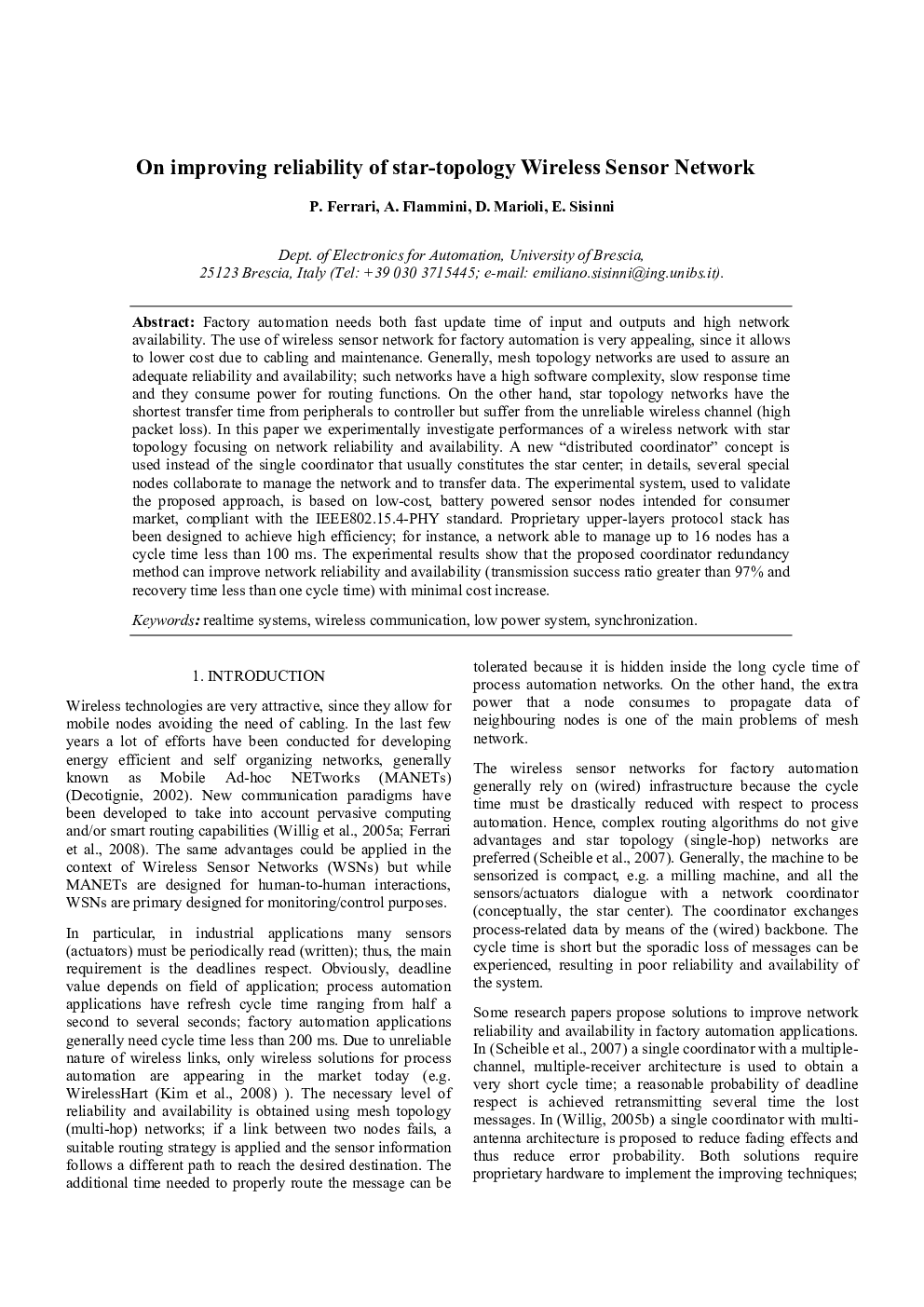| Article ID | Journal | Published Year | Pages | File Type |
|---|---|---|---|---|
| 721759 | IFAC Proceedings Volumes | 2009 | 7 Pages |
Factory automation needs both fast update time of input and outputs and high network availability. The use of wireless sensor network for factory automation is very appealing, since it allows to lower cost due to cabling and maintenance. Generally, mesh topology networks are used to assure an adequate reliability and availability; such networks have a high software complexity, slow response time and they consume power for routing functions. On the other hand, star topology networks have the shortest transfer time from peripherals to controller but suffer from the unreliable wireless channel (high packet loss). In this paper we experimentally investigate performances of a wireless network with star topology focusing on network reliability and availability. A new “distributed coordinator” concept is used instead of the single coordinator that usually constitutes the star center; in details, several special nodes collaborate to manage the network and to transfer data. The experimental system, used to validate the proposed approach, is based on low-cost, battery powered sensor nodes intended for consumer market, compliant with the IEEE802.15.4-PHY standard. Proprietary upper-layers protocol stack has been designed to achieve high efficiency; for instance, a network able to manage up to 16 nodes has a cycle time less than 100 ms. The experimental results show that the proposed coordinator redundancy method can improve network reliability and availability (transmission success ratio greater than 97% and recovery time less than one cycle time) with minimal cost increase.
